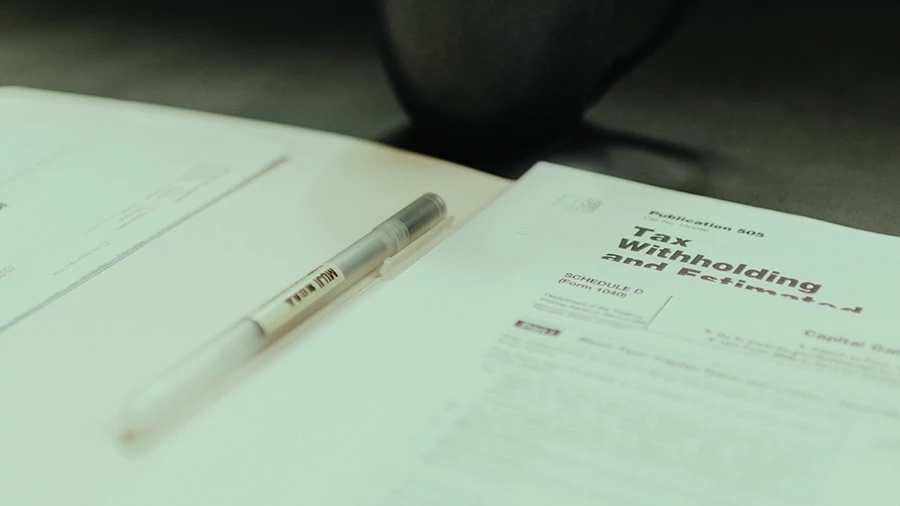In our China Monthly Tax Brief for August 2023, we discuss the most important among over 30 tax policies and guidelines released by the Ministry of Finance (MOF), in conjunction with the State Taxation Administration (STA) and various other government departments. In particular, many policies impact the IIT incentives and deductions regime and the foreign investment environment.
In August 2023, over 30 tax policies and guidelines were released by China's Ministry of Finance (MOF), State Taxation Administration (STA), and other departments. This marked a significant increase in the number of policy releases compared to recent years.
Among others, a number of important preferential individual income tax (IIT) policies got extended to the end of 2027; three IIT special additional deduction standards were raised; the Guidelines on Preferential Tax Policies for Supporting the Development of Small and Micro Enterprises and Individually Owned Business (1.0) was released; six tax incentives for boosting the capital market were introduced, including a 50 percent reduction of the stamp tax on securities transactions; and the Value-added Tax Law (Draft for Second Reading) was submitted to the Standing Committee of the 14th National People's Congress (NPC) for deliberation.
This issue of China Monthly Tax Brief will introduce the policy changes that are most relevant to foreign investors and businesses.
China extended multiple IIT incentives to the end of 2027
On August 23 and August 28, 2023, the MOF and the STA jointly released several documents, extending a number of preferential IIT policies to the end of 2027.
These include the tax-exempt fringe benefits for foreign individuals, the GBA IIT subsidy for foreign talents, the preferential tax treatment regarding annual on-time bonus, the preferential tax treatment for equity incentives, and the exemption of annual IIT settlement for certain taxpayers.
Preferential IIT Policies Extended to the End of 2027
Policy
Legal basis
Applicable taxpayers
Main points
IIT policy for equity incentives of listed companies
MOF, STA Announcement [2023] No.25
Resident individual*
Equity incentives, such as stock options, stock appreciation rights, restrictive stocks, and equity rewards (hereinafter referred to as "equity incentives" in short) obtained by a resident individual which satisfy the relevant criteria shall not be included in his/her consolidated income for the current year. IIT shall be computed separately on the full amount by applying the comprehensive income tax rate table.
Tax-exempt fringe benefit of foreign individuals
MOF, STA Announcement [2023] No.29
Foreign individuals
Foreign individuals working in China can enjoy tax-exempt benefits on certain allowances such as housing rental expenses, education expenses for children, and language training expenses. Foreign individuals who are qualified as resident individuals can also choose to enjoy the IIT special additional deductions. But they cannot enjoy the two preferential policies at the same time.
IIT treatment of annual one-time bonus
MOF, STA Announcement [2023] No.30
Resident individual*
For annual one-time bonus obtained by a resident individual that complies with relevant provisions, the resident individual can choose not to include the annual one-time bonus amount in his/her comprehensive income for that year, and compute tax on the annual one-time bonus separately instead. The applicable tax rate and quick deduction shall be decided based on the amount of the annual one-off bonus divided by 12 months.
Circumstances where resident taxpayers can be exempt from annual IIT settlement
MOF, STA Announcement [2023] No.32
Resident individual*
For comprehensive income derived by a resident individual during the period from 1 January 2024 to 31 December 2027, where the annual comprehensive income does not exceed RMB120,000, or where the annual tax payment amount upon final settlement does not exceed RMB400, the resident individual may be exempted from completing the formalities for annual IIT settlement.
GBA IIT subsidy for qualified foreign talents
Caishui[2023] No.34
Foreign high-end and in-demand talent working in the nine GBA cities
For overseas high-end and in-demand talent working in the region, the portion of IIT that an eligible person has paid in one of the nine mainland cities of the Greater Bay Area—that is in excess of the first 15 percent of their taxable income—is subsidized by the respective municipal government. This subsidy is also exempt from further IIT.
Observations from Dezan Shira & Associates
On August 13, 2023, the State Council issued the Opinions on Further Optimizing the Foreign Investment Environment and Increasing Efforts to Attract Foreign Investment. The guideline contains 24 policies that are generally considered to be the most clear and feasible for optimizing the foreign investment environment, as compared to other foreign investment promotion policies released in recent years. Among others, the 24-measure guideline mentioned that China will "better implement relevant tax preferential policies for foreign-invested enterprises, such as tutoring and helping foreign individuals to enjoy housing subsidies, language training fees, children's education fees, and other allowances in accordance with relevant state regulations."Just two weeks after the 24-measure guideline, the MOF and STA released the extension of the policy on tax-exempt fringe benefits for foreign individuals, which demonstrates the Chinese government’s determination and eagerness in attracting foreign investment and boosting market confidence.
The continuation of the tax-exempt policy on foreigner’s fringe benefits is considered to be one of the most significant news for foreign individuals and business since the IIT reform in 2019.
According to the statistics from relevant human resources service agencies, 60 to 70 percent of employers provide subsidies for foreign individuals working in China, of which housing rental expense, education expenses for children, and language training expenses account for more than 80 percent.
In recent years, the tax-exempt policy on foreigner’s fringe benefits has faced uncertainties. Although the government extended the policy to December 31, 2023 at the end of 2021, foreign individuals employed in China and their employers found it necessary to conduct a comprehensive assessment of the potential repercussions resulting from the discontinuation of the tax-exempt policy on foreigner's fringe benefits and make necessary preparations.
Now, the latest extension policy makes it clear that foreign individuals working in China can still enjoy the tax-exempt fringe benefits for at least another four years, which will not only reduce the personal tax burden of foreign individuals, but also help employers save on management costs.
However, it should be noted that in practice, the tax authorities may have different compliance requirements for the application of tax-exempt fringe benefits. We discuss them below:
- Food subsidies, laundry expenses, travel subsidies, relocation expenses, and family visit expenses have a greater probability of being questioned by the tax authorities. This is related to the difficulty in distinguishing whether these subsidies are personal expenses or company expenses, and whether the amount of subsidy is reasonable.
- The tax-exempt fringe benefits must be specified in the labor contract and shown separately from the wage income.
- To enjoy tax-exempt fringe benefits, relevant supporting material (such as invoices, rental contracts, etc.) must be submitted to the tax bureau in advance for filing purpose.
For businesses that plan to hire or send foreigners to work in China, we suggest that they communicate effectively with the competent tax bureau in advance and take the initiative to understand the conditions and declaration requirements for foreigners to enjoy tax-exempt fringe benefits.
China raises IIT special additional deduction standards on three expenses
On August 31, 2023, the State Council released the Notice on Raising the Standard of Special Additional Deduction for Individual Income Tax (IIT), raising the pre-tax deduction standards on certain expenses related to child care, education, and elderly support in China.According to the notice:
- The special additional deduction standard for nursing expenses for children under three years old will be raised from RMB 1,000 per child per month to RMB 2,000 per child per month.
- The special additional deduction standard for children’s education will be raised from RMB 1,000 per child per month to RMB 2,000 per child per month.
- The special additional deduction standard for supporting the elderly will be raised from RMB 2,000 to RMB 3,000 per month. Among them, if pertaining to an only child, the deduction is according to the standard quota of RMB 3,000 yuan per month. In case of more than one child, a monthly deduction amount with their siblings, and the amount shared by each person cannot exceed RMB 1,500 per month.
Read more: China Individual Income Tax - Raises to Deductions on Three Expenses
Value-added Tax Law (Draft for Second Reading) to solicit public opinions
On August 28, 2023, the Value-added Tax Law (Draft for Second Reading) was submitted to the Standing Committee of the 14th NPC for deliberation. The Draft for Second Reading is open to public comment from September 1 to September 30.According to the schedule of previous tax legislation, the VAT law is likely to be formally introduced after three reviews by the NPC. That is to say, the VAT legislation has entered the countdown period.
Since the content of the draft VAT law has been relatively mature, which basically integrated the existing regulations, the main amendment of the Draft for Second Reading is to further improve, clarify, and refine some clauses.
We observed the following highlights in the Draft for Second Reading:
- It clarified that taxpayers could choose to apply for refund of the VAT credit or continue to deduct it in the next period.
- VAT on loan interest expenses and the purchase of catering, residents' daily, and entertainment services that are not directly consumed are not included in the scope of non-deductible input.
- Provision of services without compensation shall not be regarded as taxable transactions subject to VAT.
- If an overseas institution provides services or intangible assets to domestic customers, where the services or intangible assets are consumed overseas, the transactions shall not be regarded as taxable transactions subject to VAT.
- It clarifies that the levy rate for simple VAT computation method is 3 percent and makes no reference to the 5 percent rate currently applicable to the sale and rental of real property.
- It confirms the standard that the annual taxable sales of small-scale taxpayers do not exceed RMB 5 million and the conditions for taxpayers applying to be a VAT general taxpayer. (This is consistent with current policy, but merely elevates existing rules into law.)
The China Monthly Tax Brief is a new series produced in association with the experts at Dezan Shira & Associates’ China practice.






